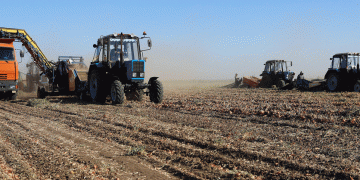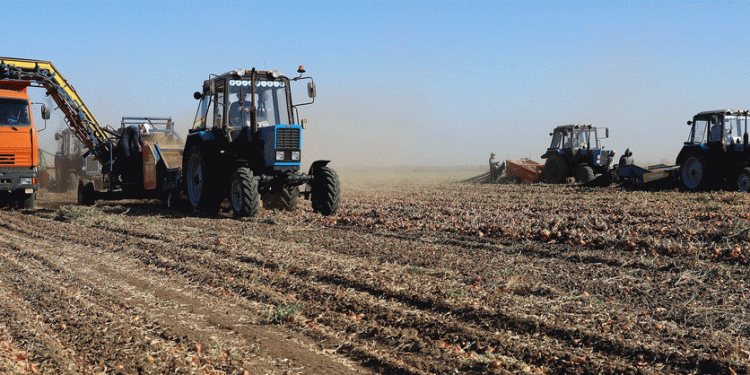The 2023 harvest season in the Volgograd Oblast is in full swing, with a significant milestone already achieved: the collection of over 500,000 tonnes of vegetables. This volume represents half of the region’s planned target, positioning Volgograd as a critical contributor to Russia’s agricultural output. As highlighted by Governor Andrey Bocharov during a field meeting at the “Rus” enterprise in the Gorodishchensky district, this success is not just about quantity but is underpinned by a strategic, seven-year investment in the entire agricultural value chain.
The current harvest phase is focused on mid and late-season crops. While the harvesting of cucumbers and pattypan squash is complete, farmers are in the final stages for tomatoes, peppers, eggplants, zucchini, and pumpkin, with active onion harvesting underway. The season will conclude with late varieties of cabbage, carrots, and table beets. This staggered harvest is strategically aligned with the region’s enhanced storage capabilities.
The cornerstone of Volgograd’s agricultural strategy is its modernized infrastructure. As Governor Bocharov emphasized, the region has built a new network of modern vegetable storage facilities featuring automated climate control and ventilation systems. The “Rus” enterprise serves as a prime example, equipped with sorting, packaging, and bagging lines that enable the storage and sale of vegetables well into the following spring. This technological leap has yielded dual benefits: a drastic reduction in post-harvest losses and a decreased dependency on seasonal foreign labor through increased automation.
Furthermore, the shift towards high-quality domestic onion varieties underscores a broader commitment to self-sufficiency and product quality. The impact of these investments is quantifiable. The region already processes approximately 540,000 tonnes of fruits and vegetables from the collective sector, with an additional 450,000 tonnes of simultaneous storage capacity. This capacity is crucial; according to the UN’s Food and Agriculture Organization (FAO), post-harvest losses for fruits and vegetables can exceed 20% in regions without adequate facilities. By mitigating these losses, Volgograd directly strengthens the nation’s food security.
The story in Volgograd is no longer just about a successful harvest. It is a case study in building a resilient and modern agricultural sector. By strategically coupling robust production with massive investment in storage, processing, and automation, the region is ensuring that the half-million tonnes harvested today will sustainably supply the nation for months to come. The governor’s directive to systematically increase these metrics highlights a clear understanding that long-term food security depends on efficiency from field to fork, minimizing losses and maximizing value.































